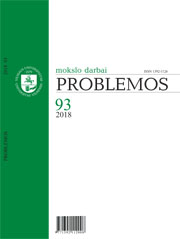M. DE UNAMUNO VALIOS SAMPRATA METAFIZINIO VOLIUNTARIZMO KONTEKSTE
M. DE UNAMUNO’S CONCEPTION OF WILL IN THE CONTEXT OF METAPHYSICAL VOLUNTARISM
Author(s): Algirdas FediajevasSubject(s): Philosophy, Metaphysics, Methodology and research technology
Published by: Vilniaus Universiteto Leidykla
Keywords: will; vital impetus; Unamuno; Schopenhauer; Bergson;
Summary/Abstract: The article deals with Miguel de Unamuno’s conception of will in comparison with Schopenhauer’s will and Bergson’s vital impetus. Despite the difference of object in philosophies of these three authors (Unamuno says that he deals with a human in concrete sense, Schopenhauer – with reality in the broadest sense, Bergson – with living organisms), the referents of those conceptions are correlative. These correlations are approved by analysing how will and vital impetus act through cognitive faculties in humans. However, Unamuno’s specific methodology is a key aspect that separates him from the two other authors: although they all recognize the intellect’s inability to know the essential reality, Unamuno, unlike Schopenhauer and Bergson, underlines the significance of suffering and empathy (that arises from suffering) in grasping voluntarist essence of reality. Through this methodology, Unamuno thinks, concreteness is not lost in universality as it happens in Schopenhauer’s and Bergson’s systems. This methodological difference is also approved by the form through which Unamuno represents his philosophical ideas: literary fiction (novels, dramas, poetry) as a form of philosophy can be called an attempt to think concreteness and universality together.
Journal: Problemos
- Issue Year: 2018
- Issue No: 93
- Page Range: 7-19
- Page Count: 13
- Language: Lithuanian

